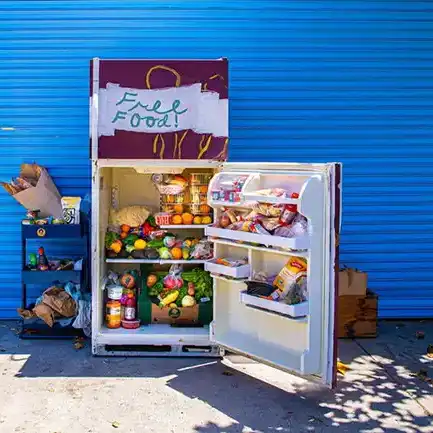According to the Pew Research Center, more than half of Americans used social media platforms like Facebook, YouTube, and X as news sources in 2024 despite the reported proliferation of misinformation and voter manipulation on these online sites.
Meanwhile, another 2024 Pew Research Center survey found that 63 percent of American teenagers got their news from TikTok. The study also stated that in four years, the percentage of adults who regularly turned to TikTok for news increased by five times.
“With its short-form video content, TikTok provides the ideal platform for both misinformation and disinformation to pass as credible, in part because content creators’ popularity may be misinterpreted as expertise, even where it doesn’t exist,” a 2023 blog from Capital Technology University’s website stated.
In a 2024 article that documented waning public interest in cable news outlets like CNN and MSNBC, the libertarian magazine Reason noted that podcasts “have gone the opposite direction” from short-form information blasts on platforms like TikTok and YouTube by offering “lengthy, discursive interviews that let subjects speak uninterrupted for minutes at a time and conversations that flow more naturally—a near-impossibility in the tightly paced, commercial-bounded programming blocks of cable news programming.”
Podcasts are increasingly becoming popular among Americans, with “Comedy, entertainment, and politics… [being] at the top of the list of topics that podcast listeners say they regularly listen to,” according to a 2023 report by the Pew Research Center. The report further points out that those who turn to podcasts for news see them as more trusted sources than other platforms.
“You can’t get into a topic and cover it in five minutes,” notes Deborah “Arnie” Arnesen, the host of the public affairs podcast “The Attitude with Arnie Arnesen.” She observes that podcasts allow deeper dives in a single episode and enable reporters to devote multiple episodes to one issue.
“Some things need to be repeated, looked at from different angles, and have different voices describing the same topic, because with each voice, you learn something more,” she says. “It’s that liberation, easy availability, and the license to drill down and realize that I can’t just talk about this once and move on to a different topic, because this topic is like a hydra. It has so many heads. I think that is what is so exciting about [podcasts]: There are no parameters to what you do. The only parameters are whether people listen.”
Public affairs podcasts like “Worldly,” “Intercepted,” and “The Rest Is Politics” often explore single topics across numerous episodes, while “The Daily,” “Today in Focus,” and “Today, Explained” do this more occasionally, concentrating mainly on the important news of the day.
“The Rest Is Politics” “looks to debate in a civilized way, creating a bridge between the ‘political divide’ of [Britain’s] Labour and Conservative [parties] so that meaningful conversations can be had about events of the week,” according to a 2022 article in the Oxford University newspaper, the Oxford Blue.
Arnesen, whom New Hampshire Business Review in 2003 called “a female liberal gadfly in a field dominated by such conservative male voices as Rush Limbaugh, Sean Hannity, Bill O’Reilly, and Michael Savage,” notes that current affairs podcasts can help listeners of differing political ideologies see eye to eye. For example, she says, “No one is going to escape [Donald Trump’s] chaos, his hurt, and the economic implosion [that his administration causes]. If someone isn’t always politically aligned with you, but their hurt is the same, you can say, ‘You should listen to this [podcast or radio show]. It might help you to understand why your family or community is suffering, why that job hasn’t shown up, [or] why you can’t access your social security.’”
In contrast to left-leaning podcasts like “Democracy Now!,” “Pod Save America,” and “The Ezra Klein Show,” programs like “Left, Right & Center” and “Breaking Points with Krystal and Saagar” present both left- and right-wing perspectives on public affairs.
Arnesen feels that being exposed to diverse perspectives can help make us less “cemented into our silos. I replaced Rush Limbaugh on five radio stations many, many years ago. You know what I learned from Rush? He never lied. He just cherry-picked and left out critical facts. I would say to my audience, ‘Understand that’s another reason for you to listen to [divergent viewpoints]. We all put everything through our lens, and our lens will only look at certain things. That doesn’t mean we’re lying to you, but it means that we might be missing something because we didn’t look to the left or the right.’”
She adds that podcasts complement traditional news outlets rather than replace them. “This is synergistic,” she says. “I just want to make sure you hear different voices coming from a different range of perspectives, because you never know when it will hit.”
Arnesen describes podcasts as “the interstices between the cracks. I see the mainstream media as bricks in a wall, but bricks can’t be held together without cement. In a lot of ways, podcasts are that cement. They are what ultimately will hold us together because they’re more liberated, can take more time, and can invest in what we need to know. The bricks can’t, but [podcasts] can.”


